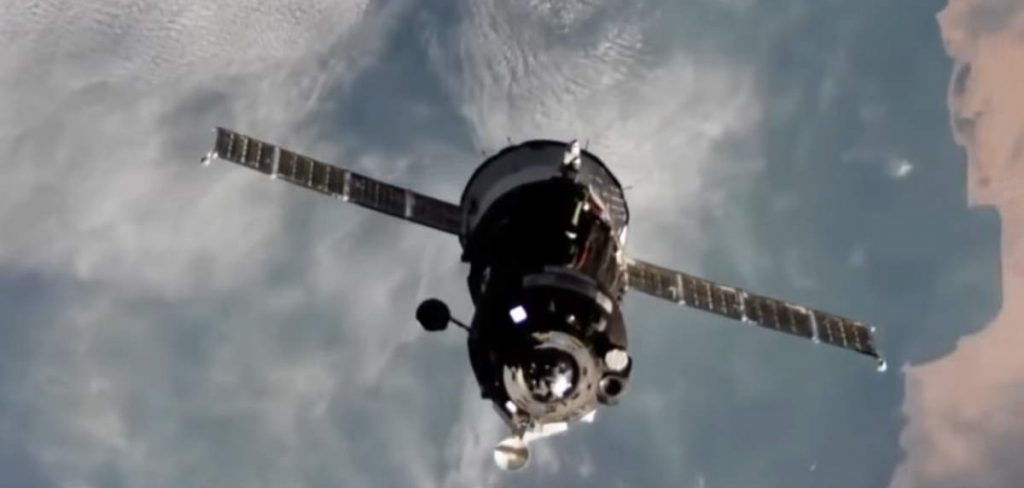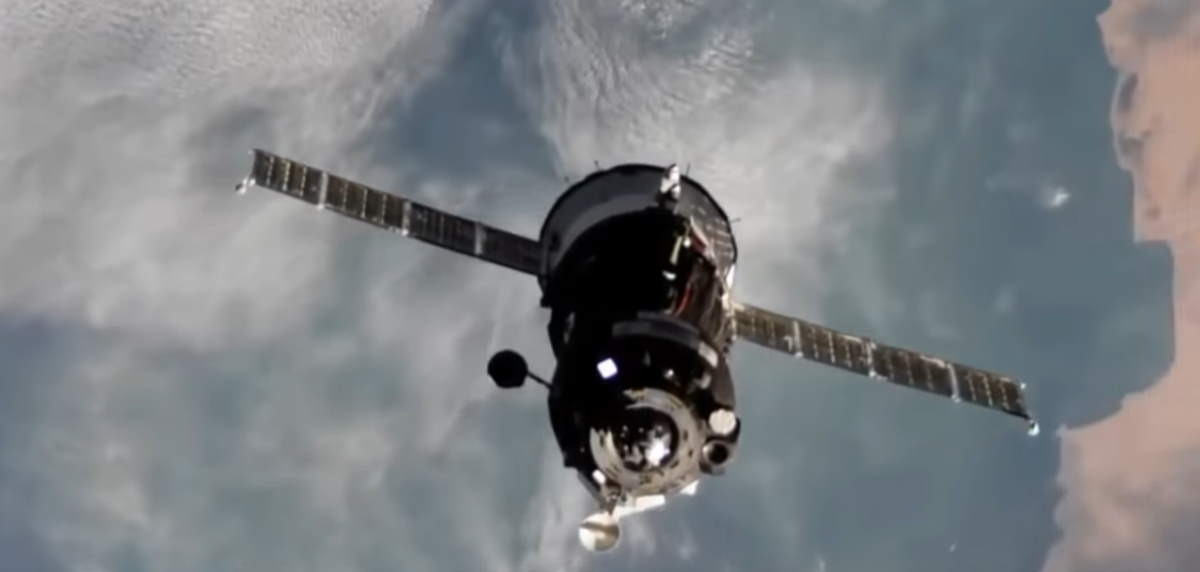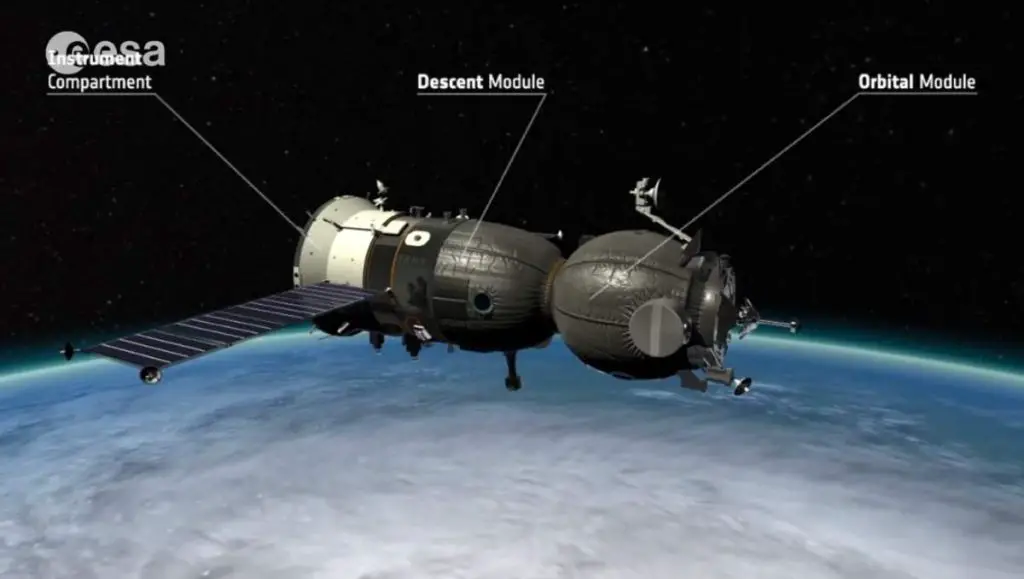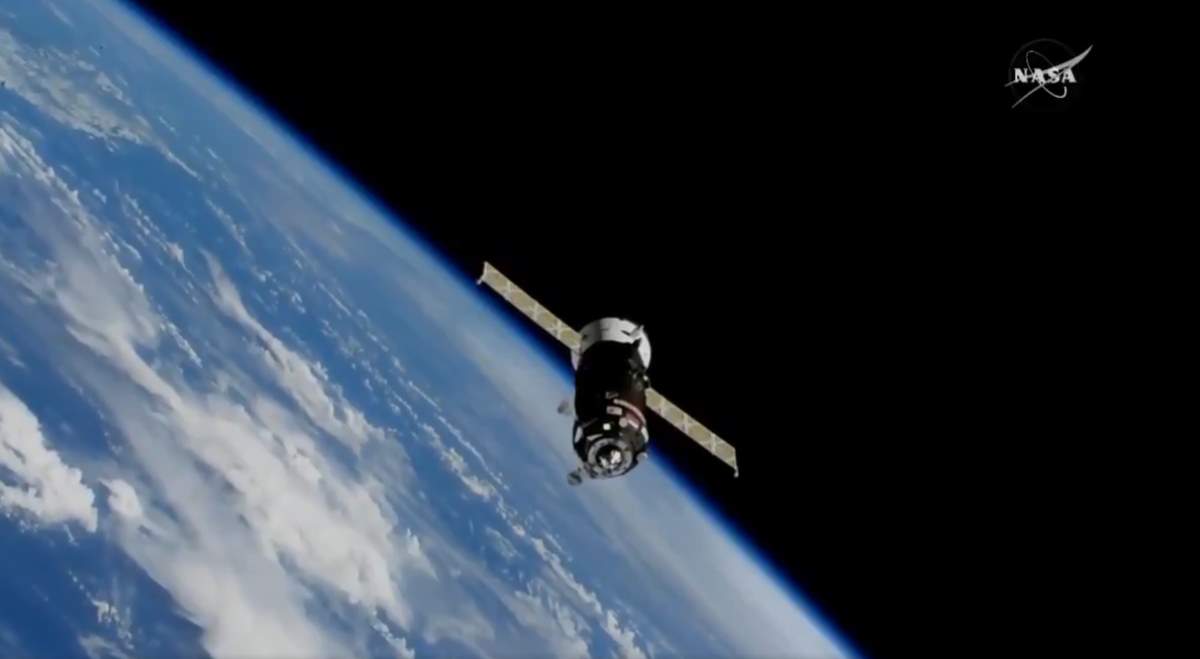On 14 October 2020, Soyuz MS-17 transported three crew members of the Expedition 64 crew to the International Space Station with a record-breaking 3-hour flight. It was the 145th crewed flight of a Soyuz spacecraft. The crew consists of a Russian commander (Sergey Ryzhikov) and a Russian and American flight engineer (Sergey Kud-Sverchkov and Kathleen Rubins).
The mission marked the first use of the Soyuz’s new “ultrafast” two-orbit rendezvous flight plan, which saw Soyuz MS-17 arrive at the orbiting laboratory about three hours after launch. Previously, a Soyuz flight to the International Space Station was taking at least six hours – if launched shortly after the International Space Station orbit passes over the Baikonur Cosmodrome in Kazakhstan.
However, if the Soyuz rocket misses the necessary launch window for any reason, Soyuz has enough extra fuel to revert to a two-day-long rendezvous. This happened in March 2014 because of an altitude control problem.
The new, ultra-fast two-orbit two-orbit rendezvous has been modeled for quite a while and it has been tested with an uncrewed Russian Progress cargo vehicle, which is nearly identical to the Soyuz MS-17 spacecraft used to transport the Expedition 64 crew.
During their six-month mission, Rubins, Ryzhikov, and Kud-Sverchkov will conduct hundreds of science experiments and technology demonstrations in a diverse field of disciplines, including biology, biotechnology, physical, and Earth science.

Expedition 64 crew are expected to join SpaceX Crew-1, the first operational crew rotation flight of SpaceX’s Crew Dragon and NASA’s Commercial Crew Program. NASA astronauts Michael Hopkins, Victor Glover, Shannon Walker, and Japanese astronaut Soichi Noguchi will be flying the flight to the ISS for a six-month stay.
Crew-1 was originally scheduled to join Expedition 64 at the end of October; however, a problem with the gas generators of a SpaceX Falcon 9 rocket during a non-NASA launch in September caused a delay and the flight will not be performed any earlier than early to mid-November.
Videos of the Soyuz MS-17’s record-breaking 3-hour flight
Sources
- “A Soyuz capsule just made a record-breaking 3-hour flight to the International Space Station” on Space.com
- “Soyuz MS-17 completes a 3-hour journey to ISS” on Nasa Spaceflight website
- Soyuz MS-17 on Wikipedia
- “Soyuz crew launches on ‘ultrafast’ two-orbit flight to the space station” on the Collect Space website
- Moon Landings: All-Time List [1966-2025] - February 2, 2025
- What Is Max-Q and Why Is It Important During Rocket Launches? - January 16, 2025
- Top 10 Tallest Rockets Ever Launched [2025 Update] - January 16, 2025


